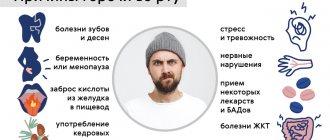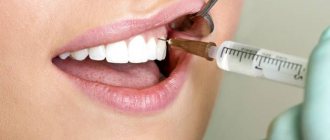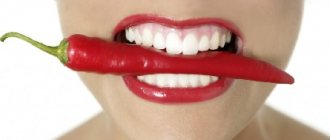Symptoms
Bitterness in the mouth can manifest itself in different ways, for example:
- after overeating and eating certain foods - indicates the reflux of bile into the esophagus and diseases of the bile ducts,
- aftertaste after taking medications means a disruption of the normal microflora, a negative effect on the liver and the destruction of beneficial bacteria,
- after sports training - speaks of liver pathologies.
Bitterness can occur at different times of the day, after physical activity and during the abuse of bad habits. Often the symptom is accompanied by nausea and vomiting, dizziness, heaviness in the side and abdominal pain, white coating on the tongue and a feeling of bloating, heartburn and belching, dry mouth. At the appointment, you need to inform the doctor in detail about each sign.
Drug therapy
Diagnosis of gastrointestinal diseases
Treatment of bitterness in the mouth and nausea, or rather the causes of their occurrence, is a complex measure, which invariably consists of:
- Diagnosis of the disease, determination of its pathogenesis and symptoms exhibited by the patient.
- Relief of unpleasant symptoms.
- The main course of treatment aimed at combating the cause of bitterness and nausea.
- Maintaining the obtained result.
- Prevention of gastrointestinal diseases.
Perhaps all of the described stages can be independently organized by the patient. The most difficult step, most likely, will be the first step, which is diagnosis. Its difficulty lies in the fact that in no case should mistakes be made during diagnosis.
Therefore, if, with the help of medical reference books with a detailed description of each gastrointestinal ailment, you were unable to determine the pathology specifically in your case, it is better not to spend a week on home therapy, but to go for treatment together with a gastroenterologist.
The remaining stages of therapy are relatively simple, since their organization directly depends on the patient’s existing disease. For general information purposes, we present a general list of drugs used to get rid of the symptoms being considered today:
- To relieve unpleasant symptoms (nausea, abdominal pain, bitter taste, etc.), various drugs are used, among the most used of which are: antiemetics (Domperidone), sorbents (Smecta, activated carbon) and antispasmodics (No-Shpa).
- To combat the cause of the pathology - antiemetic medications (for general gastrointestinal disorders), anti-inflammatory drugs (for inflammation in the stomach), antibacterial agents (for bacterial lesions) and so on.
Maintaining the results obtained and preventing them are usually carried out without the use of medications. Often it is enough to introduce a healthy lifestyle and a diet that excludes the intake of foods that are difficult for the gastrointestinal tract.
In case of a long-term stable condition after therapy, it is permissible to abandon the diet, diversifying the food with all products (naturally, without fanaticism).
Which doctor treats bitterness in the mouth?
First of all, bitterness in the mouth is considered as a symptom of gastroenterological disorders, so when the first signs appear, you need to make an appointment with a gastroenterologist.
To make an appointment with a doctor, choose any method:
- call the clinic +7 (495) 103-99-55,
- order a call back,
- leave a request for an appointment using a convenient form on the website:
Often people do not pay attention to bitterness in the mouth, explaining the occurrence of the symptom with overeating, an uncomfortable position in bed and some other reasons.
IMPORTANT! Rarely does anyone think that bitterness in the mouth is a signal indicating the development of serious pathology of the liver and gastrointestinal tract.
If you have been experiencing this symptom for a long time, do not engage in self-diagnosis and self-medication - make an appointment with a specialist at the Kuntsevo Treatment and Rehabilitation Center! An experienced gastroenterologist will collect anamnesis, complaints, conduct an objective examination, and refer you for laboratory and instrumental diagnostics to understand the cause of the pathology.
SIGN UP
When to see a doctor
Bitterness in the mouth and nausea are a reason to consult a doctor
For some people, bitterness in the mouth and nausea are a periodic routine of life that does not cause any panic at all.
In part, of course, this is correct - such illnesses should not cause panic, but it is also unacceptable to leave them unattended.
If symptoms of this kind appear for the first or second time, self-medication is allowed. You can be treated at home for no more than 5-7 days, based on the results of which it is worth drawing a conclusion: whether the therapy is effective or not.
In the case where there is an effect, a visit to a gastroenterologist is not necessary. Under other circumstances, it is better not to hesitate and go to the clinic for examination.
In addition, pathologies that manifest not only with bitterness in the mouth and nausea, but also with the following symptoms deserve a mandatory visit to the hospital:
Treatment methods
Basically, the treatment of bitterness in the mouth comes down to taking medications. The specialist selects complex therapy based on the results of tests and instrumental examinations. The gastroenterologist identifies one of three problems:
- Liver disorders. Means are prescribed to stabilize the operation of the “filter”,
- Digestive tract dysfunction. Drugs that affect the digestive system normalize the work
- Uncontrolled bile production. Eliminated by drugs that affect the level of secretion, for example, anticholinergics.
Causes of bitterness and nausea
Bitterness in the mouth and nausea often occur after eating
When considering the mechanism of bitterness and nausea, it is first worth paying attention to the functions of the liver.
The fact is that it is this organ that not only filters the substances entering the body for their further removal, but also synthesizes a considerable amount of organic materials that are necessary for the stable functioning of the body.
One of these, of course, is bile, which enters the gastrointestinal tract (hereinafter referred to as the GIT) and participates in the digestion process.
Bile acids perform a colossal range of functions - from breaking down fats to stimulating the work of enzymes, but they taste unpleasant and in large quantities are dangerous for the soft tissues of the digestive tract and nasopharynx.
To avoid bile from entering these cavities of the body, human nature requires the presence of a special sphincter, which limits the acidic environment of the stomach from more sensitive areas.
Disturbances in the functioning of this muscle, caused by gastrointestinal pathologies, invariably provoke the release of bile acids into the upper digestive tract and nasopharynx, which ultimately manifests itself in an unpleasant bitterness in the mouth.
Why do we need to treat bitterness in the mouth?
Since an unpleasant taste in the mouth is a symptom of some pathology, a comprehensive examination is needed, without which it is impossible to establish a diagnosis. Our clinic has the latest equipment for ultrasound diagnostics of the liver and gallbladder, gastroscopy, etc., which help identify the pathological process in a short time. Our own laboratory allows you to get test results within a few hours. It is the quick examination process that attracts many Moscow residents to our clinic, as well as experienced, qualified staff ready to help every patient.
Why is there a problem?
Temporary nausea and bitterness in the mouth, as a rule, are nothing more than the result of overeating the day before. So, these symptoms and weakness in the morning can be provoked by alcohol, peppery, fatty, fried foods eaten for dinner, marinades, smoked foods and other “aggressive” foods.
Nausea and bitterness in the mouth may have more serious (pathological) causes. The first “suspect” is biliary dyskinesia - muscle spasm leading to disruption of bile outflow. Bile stagnates, from time to time it is thrown into the esophagus along with particles of undigested food, causing discomfort in the oral cavity.
Other causes of bitterness in the mouth and nausea:
- infectious diseases of the upper respiratory tract;
- ulcers of the stomach, duodenum;
- inflammatory processes in the pelvic organs;
- bitterness in the mouth is a classic sign of almost all liver pathologies;
- long-term use of various groups of medications (primarily antibiotics);
- acid reflux (occurs also during pregnancy due to weakening of the gastric sphincter due to increased levels of prolactin in the blood).
If the patient feels sick, has a bitter taste in the mouth and has diarrhea, this set of symptoms may indicate poisoning (general intoxication) of the body with salts of heavy metals - cadmium, copper, lead, mercury. Your health may be aggravated by severe headaches, bloating, dry mouth, dizziness, and increased body temperature.
Hormonal changes in the female body during pregnancy are a common cause of the appearance of a bitter taste on the oral mucosa
Liver diseases that most often provoke nausea and bitterness in the mouth:
- hepatosis (dystrophic changes in hepatocytes - liver cells - under the influence of toxins that lead to dysfunction of this organ);
- hepatitis (liver inflammation of viral origin);
- cirrhosis (irreversible destruction of organ cells due to the replacement of parenchymal tissue with fibrous tissue).
Belching, diarrhea, bitter taste in the mouth, nausea and weakness are indicators of helminthiasis (parasitic activity of round and flatworms in certain internal organs). Nausea, heartburn, bitterness in the mouth in the morning are “sure signs” of pregnancy in women. The appearance of discomfort is associated with a weakening of the gastric sphincter and, as a result, the release of acid into the esophagus, as well as (at a later date) the pressure of the enlarged uterus on the stomach.
The constant presence of a bitter taste in the mouth can be a symptom of a number of dental diseases:
- stomatitis (viral, bacterial damage to the mucous membrane);
- glossitis (inflammation of the tongue);
- gingivitis (inflammatory process affecting the gums);
- The cause of discomfort may also be improperly fitted dentures or an allergic reaction to their metal elements.
Poor nutrition (unbalanced diet, an abundance of fatty and fried foods, alcohol abuse) is a factor that causes the development of diseases of the digestive tract and the appearance of dyspepsia (nausea, bitterness in the mouth, diarrhea, abdominal pain)
A bitter taste in the mouth and nausea can also be due to a violation of cerebral circulation (then the problem has a neurological basis), vascular spasm is certainly accompanied by the appearance of these symptoms, as well as general weakness, dizziness, fainting conditions, etc.
Causes
It is worth noting! The first reason for a bitter taste in the mouth after vomiting is the abundance of fatty and heavy food the day before, including bitter food. This could be onions, garlic, spicy seasonings, alcohol.
After such a “belly celebration,” poisoning often occurs, and the contents of the stomach come out.
Poisoning with subsequent vomiting and bitterness in the mouth can also be due to rotten fruits and vegetables (for example, plums).
Diseases that cause bitterness
But in most cases, a bitter taste in the mouth is associated with the release of bile into the upper gastrointestinal tract. The reasons may be:
- impaired motility of the bile ducts and, as a result, stagnation of bile;
- cholecystitis;
- cholelithiasis;
- liver diseases (hepatitis, cirrhosis);
- liver failure.
Note! With these problems, accompanying symptoms are aching or dull, weak pain in the right side.
Possible fever (acute cholecystitis, cholelithiasis), muscle pain, yellowing of the skin and sclera.
You may experience a metallic taste in the mouth (squeezing of the ducts),
light-colored loose stools, dark urine, and dry mouth.
In advanced conditions, surgery to remove the gallbladder - cholecystectomy - may be required.
Inflammation of the liver tissue
The condition, known as Botkin's disease, begins with heat and bitterness in the mouth.
If nausea and vomiting appear, this may indicate progression of the disease and the development of steatosis, liver cirrhosis, and cholelithiasis.
Problems with the gastrointestinal tract
Stay up to date! The pathology is not always associated with the liver and biliary tract, and sometimes bitterness is associated with the intestines or stomach.
Often, the symptom appears during exacerbation of gastritis, duodenal ulcer, colitis, gastric dyspepsia, reflux or the presence of the bacterium Helicobacter pylori .
Typically, problems with the digestive tract are accompanied by a white coating on the tongue, heaviness and pain in the abdomen after eating, flatulence, bloating and upset stool.
Pathologies of the pancreas associated with a lack of food enzymes manifest themselves in the form of heartburn, nausea, heaviness after eating, and a bitter or bitter-sour taste in the mouth.
Vegetative-vascular dystonia
Vomiting and subsequent bitterness in the mouth may indicate vegetative-vascular dystonia. When the disease worsens, irritability, sleep problems, and arrhythmia are present.
Keep in mind! There may be a slight increase in temperature, headache, heaviness in the stomach, dizziness, digestive problems, darkening of the eyes.
Other diseases
Continuous bitterness in the mouth may indicate bladder disease .
Sometimes vomiting and bitterness in the mouth appear against the background of a stable decrease in blood pressure , or hypotension.
Hypotension is especially often accompanied by symptoms reminiscent of poisoning (heaviness in the stomach, sour belching, decreased appetite, bitterness in the mouth), usually in women 30-40 years old.
If vomiting occurs during or immediately after an acute respiratory infection, one may suspect the development of ENT diseases and damage to the throat with purulent foci.
With mechanical irritation of the throat, the formations can be damaged and their contents can come out. Then the bitterness in the mouth is present until the first brushing of the teeth.
Treatment
Diseases of the stomach, liver, intestines, gall bladder and other internal organs are treated primarily with diet.
All fatty, fried foods, smoked foods, hot and spicy seasonings, canned food, sausages, heavy foods, alcohol, coffee and sparkling water are excluded from the diet.
Depending on the diagnosis, a therapeutic diet can be selected.
For gastritis or reflux disease, medications that reduce the acidity of gastric juice or antacids are prescribed .
It could be Rennie, Almagel.
antispasmodics (No-shpa, Spazmalgon), antiemetic medications (Motilium, Domrid), and antipyretics (Paracetamol, Ibuprofen) can be prescribed
How to remove? Smecta, Vikalin, Motoricum, and choleretic drugs help normalize the functioning of the stomach and intestines.
If an exacerbation of gastrointestinal diseases occurs due to stress, sedatives are prescribed (Motherwort, Valerian).
For diseases of the liver and gall bladder, drugs from the group of hepatoprotectors (Carsil, Essentiale Forte, Gepabene) and enzymes are prescribed .
In advanced cases, surgical methods are resorted to.
Auxiliary methods of treatment for identified diagnoses are physiotherapy and therapy using traditional recipes .
It is imperative to give up bad habits, smoking and drinking alcohol to prevent the condition from worsening and the disease progressing.
In case of dental diseases, teeth are removed or treated is performed . The diet is also adjusted.










